Scan capabilities of the Endor Labs GitHub Apps
Learn how to scan projects using the Endor Labs GitHub App.
Endor Labs provides a GitHub App that continuously monitors users’ projects for security and operational risk. You can use the GitHub App to selectively scan your repositories for SCA, secrets, RSPM, or GitHub Actions. GitHub App scans also establish baselines that are subsequently used during CI scans.
The Endor Labs GitHub App scans your repositories every 24 hours and reports new findings or changes to your code’s release versions. It also performs RSPM scans weekly on Sundays to manage your repository’s posture. See Scan with GitHub App for more information. You can also manually trigger scans for your repositories. See Re-scan projects for more information. After you install the GitHub App, you can make further changes to the settings. See Manage GitHub App for more information. You may need to review the technical limitations of the GitHub App so that you can use the GitHub App to its full potential. See Technical limitations of the Endor Labs GitHub App for more information.
If you want to use PR remediations as part of your monitoring scan or need to export your findings to GitHub Advanced Security, you need to use GitHub App (Pro).
If you are using GitHub Enterprise Server, you can use the GitHub Enterprise Server App to continuously monitor your environment.
When Endor Labs scans a repository for the first time, it detects the default branch of the repository. The findings that are created in the scan are associated with the default branch.
When you change the default branch in your source control system (for example, from main to dev):
The findings associated with the previous default branch are no longer associated with the default context reference. You can view them in the reference context.
When you rename the default branch in your source control system:
When you add a new repository version (for example, a dev branch), both the default branch and the new version are scanned by the Endor Labs App.
You can control the default branch detection by setting the ENDOR_SCAN_TRACK_DEFAULT_BRANCH environment variable in a scan profile. You need to configure the project to use the scan profile. See Configure scan profiles for more information.
By default, the environment variable is set to true. When set to true, the default branch detection is enabled, and the first branch you scan is automatically considered as the default branch.
Before installing and scanning projects with Endor Labs GitHub App, make sure you have:
endorctl, while you wait for the approval.To automatically scan repositories using the GitHub App:
Sign in to Endor Labs.
Choose Projects and click Add Project.
From GitHub, choose GitHub App.
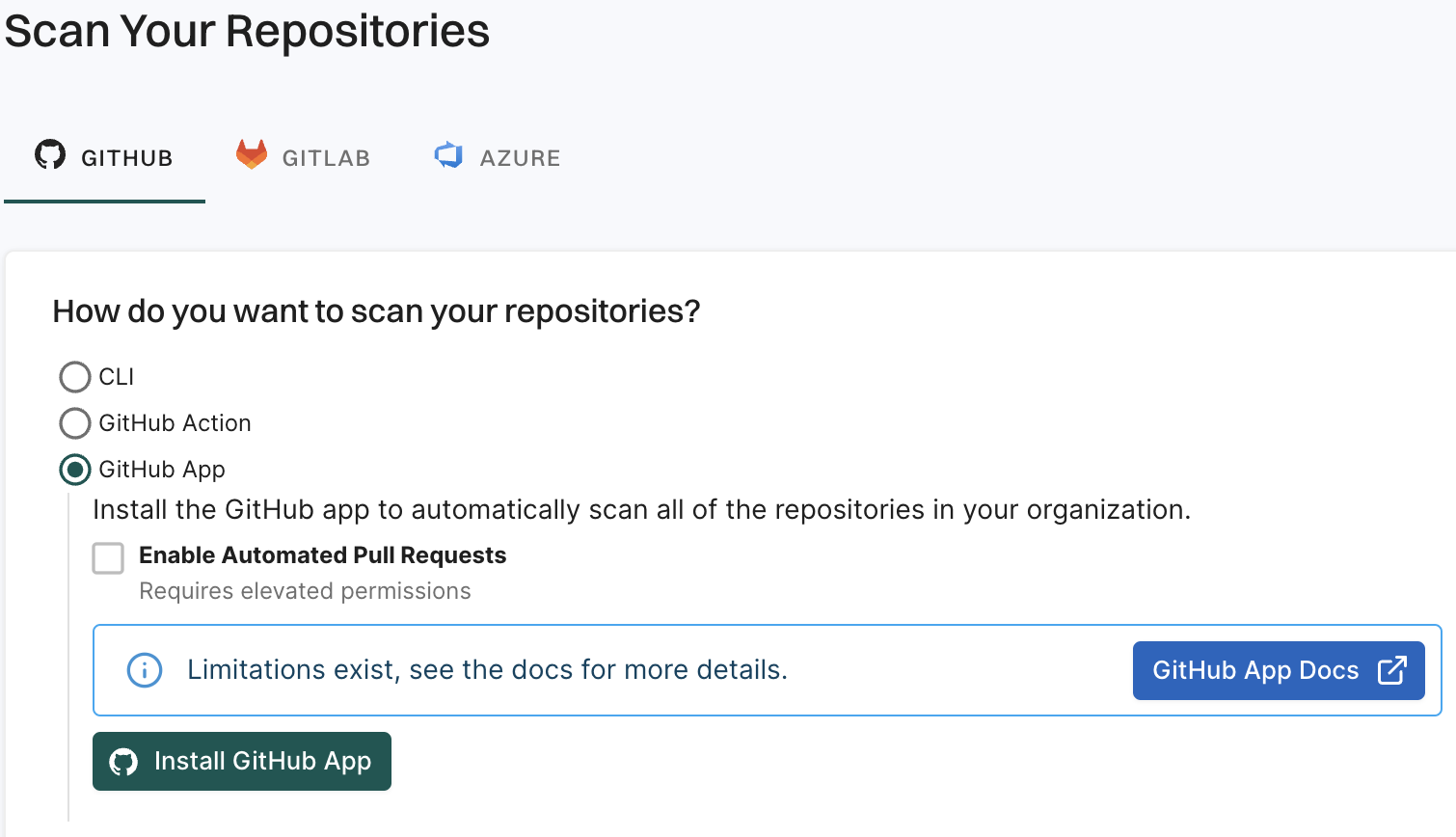
Click Install GitHub App.
You will be redirected to GitHub to install the GitHub App.
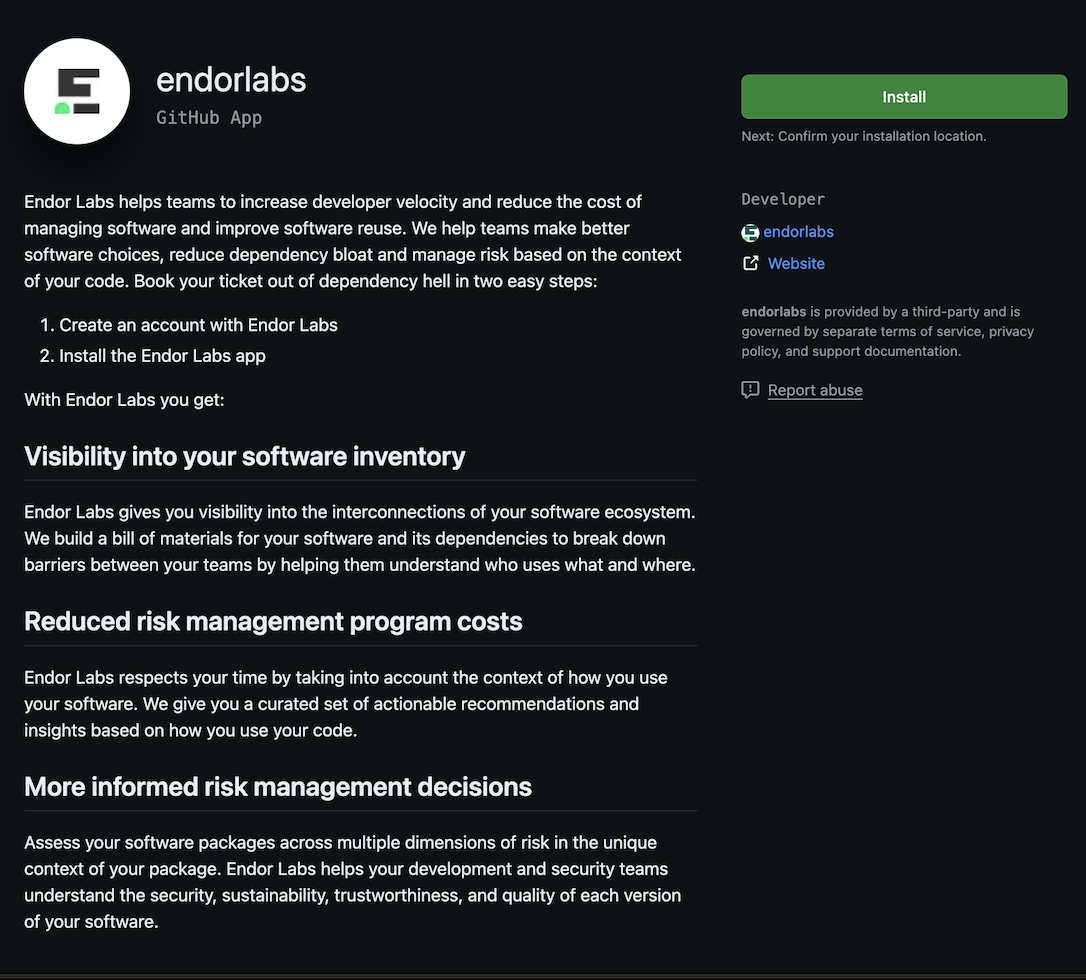
Click Install.
Select a user to authorize the app.
Select the organization in which you want to install the app.
Select whether to install and authorize Endor Labs on all your repositories or select the specific repositories that you wish to scan.
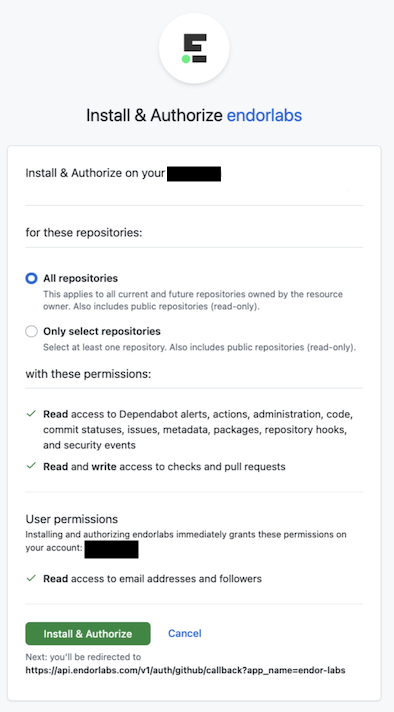
Review the permissions required for Endor Labs and click Install and Authorize.
Choose a namespace and click Next.
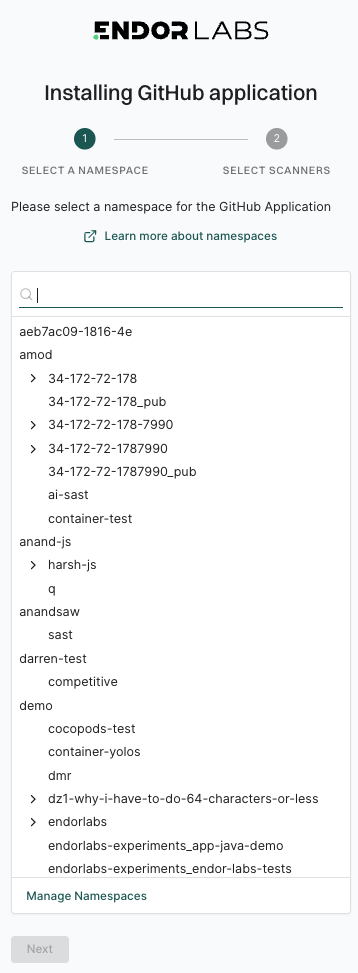
Select Manage Namespaces if you need to create a new namespace or if you don’t see the namespace you want to use in the list.
Based on your license, select and enable the scanners.
Select Include Archived Repositories to scan your archived repositories. By default, the GitHub archived repositories aren’t scanned.
Select PULL REQUEST SCANS to set preferences for scanning pull requests submitted by users.
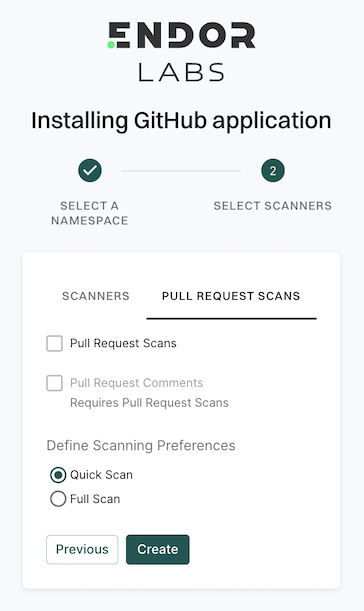
Select Pull Request Comments to enable GitHub Actions to comment on PRs for policy violations.
In Define Scanning Preferences, select either:
Quick Scan to gain rapid visibility into your software composition. It performs dependency resolution but does not conduct reachability analysis to prioritize vulnerabilities. The quick scan enables users to swiftly identify potential vulnerabilities in dependencies, ensuring a smoother and more secure merge into the main branch.
Full Scan to perform dependency resolution, reachability analysis, and generate call graphs for supported languages and ecosystems. This scan enables users to get complete visibility and identifies all issues dependencies, call graph generation before merging into the main branch. Full scans may take longer to complete, potentially delaying PR merges.
See GitHub scan options for more information on the scans that you can do with the GitHub App.
Click Continue.
You have successfully installed the GitHub App.
You can improve your experience with the GitHub App by setting up package repositories. This will help you create a complete bill of materials and perform static analysis. Without setting package repositories, you may not be able to get an accurate bill of materials. See Set up package manager integration for more information.
Learn how to scan projects using the Endor Labs GitHub App.
Rescan your GitHub projects with Endor Labs
Learn how to manage your GitHub App integration in Endor Labs.
Understand the technical limitations associated with the GitHub App.
Learn how to continuously monitor your environment with the Endor Labs GitHub App.
Learn how to continuously monitor your GitHub Enterprise Server environment with the Endor Labs GitHub Enterprise Server App.
Learn how to scan PRs using the Endor Labs GitHub app.
Was this page helpful?
Thanks for the feedback. Write to us at support@endor.ai to tell us more.
Thanks for the feedback. Write to us at support@endor.ai to tell us more.